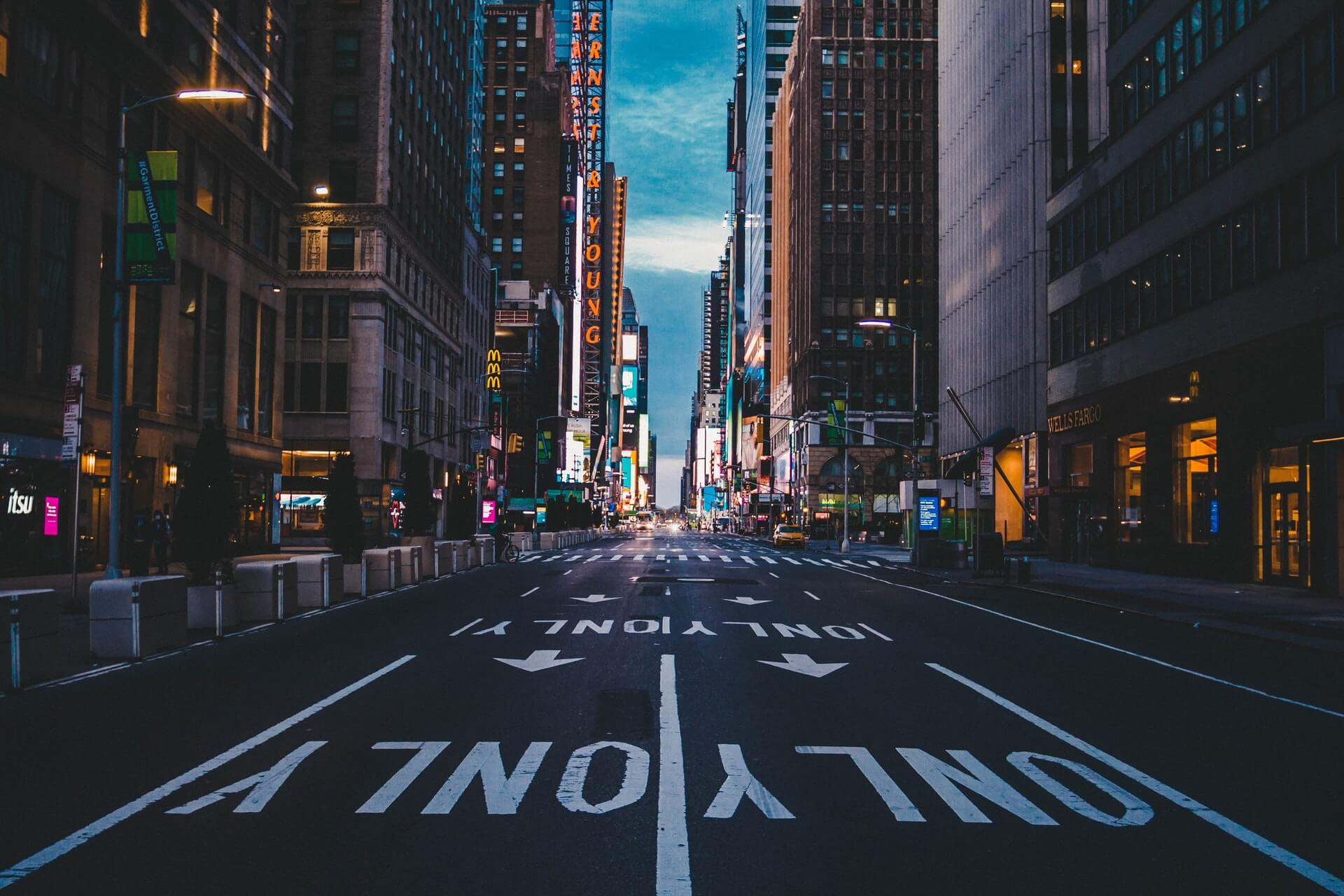New York City Mandates Escalate
by David Klemt

Mandates requiring people to wear masks and maintain social distance indoors aren’t new.
However, a mandate requiring proof of vaccination status to dine and drink inside a restaurant or bar is a new development.
This week, Mayor Bill de Blasio is escalating Covid-19 mandates in New York City.
Restaurants and Gyms
To date, New York City is nearing a 70-percent full vaccination rate.
The latest pandemic mandate is likely intended to boost the city’s vaccination rate. Per reporting, the Delta variant of Covid-19 accounts for more than 70 percent of new cases in New York City.
Interestingly, the new mandate requires workers, not just customers, to prove their vaccination status. It also makes New York the first major city to implement such a requirement.
So far, the requirement pertains to indoor restaurants, bars, nightclubs, performances, and gyms.
Per Mayor de Blasio’s announcement, the vaccine mandate, referred to as “the Key to NYC Pass,” will begin with a transition period that starts August 16. Beginning September 13, full enforcement of the mandate via New York State’s Excelsior Pass app; the NYC COVID SAFE app; or paper vaccination card is expected.
Union Square
Predictably, the response to this mandate comes in three flavors: supportive, hostility, and apathetic.
So, those who support the requirement are applauding it, saying they’ll feel safer when dining out. Conversely, those who oppose the new mandate believe this is glaring government overreach and an infringement on their freedoms.
In a way, however, this mandate isn’t completely new. Some operators throughout the United States already require proof of vaccination to enter their venues.
Currently, several media outlets are focusing on Danny Meyer and his Union Square Hospitality Group.
Several days before Mayor de Blasio’s announcement, Meyer said guests who want to dine and drink in his NYC restaurants will need to prove vaccination status starting September 7.
Additionally, Meyer announced current and new employees would have to prove they’ve been vaccinated.
At the moment, it doesn’t appear Shake Shack, of which Meyer is founder and chairman, will follow suit.
Not the First
However, Meyer is not the first operator to implement and enforce strict Covid-19 protocols to protect their teams, guests and communities.
Perhaps some of the focus on Meyer is intended to draw eyes and ears, and ultimately encourage more people to get vaccinated fully. After all, celebrity chefs and operators have nationwide and global influence.
Cynically, however, it’s to not dismiss the focus on Meyer as a ploy for ratings, clicks, and engagement.
At any rate, many operators across the country require proof of vaccination to work and dine at their restaurants, bars, nightclubs, and hotels. And many were doing so before Meyer made his announcement.
One such chef-operator is Eric Rivera, who operates ADDO in Seattle. He has required proof of vaccination for employees and guests since May of this year.
In fact, Chef Rivera has been strict in his handling of Covid-19 health and safety measures since last year.
A visit to Chef Rivera’s website finds the following disclaimer, attributed to him:
“All of our experiences are for vaccinated guests only. That will remain permanent. If that’s a problem for you then there are plenty of restaurants that will reward you for doing nothing, this isn’t one of them.”
During an NPR interview, Chef Rivera explained his stance succinctly: “I don’t want to be somebody’s last meal. Whatever I’m doing food-wise and restaurant-wise isn’t worth that.”
He’s active on Twitter, where he makes his position and policies clear.
Takeaway
If you think I’m going to point out that New York City’s new mandate increases the likelihood of hostile confrontations with guests, you’re correct. I’ve said it before and I’ll say it again.
Also, if you’re guessing that I’m going to point out that guest-facing team members must receive support from leadership when policing guest behavior, you’re two for two.
However, policies like those put in place by Chef Rivera and others throughout the industry highlight something else: They’re showing the fallacy of the maxim “the customer is always right.”
Why should operators tolerate aggression toward their employees from disrespectful, angry customers—for any reason—if the employee is remaining professional and respectful?
It certainly seems that a growing number of operators are tired of capitulating to everyone who walks through their doors. The days of bowing to customers and failing to support and defend employees look to be ending.
Personally, I’m in favor of putting that outdated adage to rest. Continuing to reward guest behaviors we find objectionable—which has been the industry’s stance for decades—ultimately motivates good employees to quit. Again, this isn’t a pandemic-driven phenomenon—it has been going on for generations.
Of course, each operator must do what they think is best for their business. Just about every decision made in this industry is risky, but risk is something all operators understand inherently. Watching dollars walk out the doors never to return can be a frightening proposition. So is the prospect of losing good workers and incurring the associated costs.
The need to balance the comfort and safety of their team members and guests is paramount—an absence of either will shut a business down. Today, however, choosing guest dollars over employee dignity, safety and mental health is inexcusable and evidence of a problematic company culture.
If we’re truly in the midst of a Great Resignation, I can’t fault operators for deciding to keep their employees safe. Even if we weren’t facing a labor shortage, I’d support operators who support their workers.
Image: Paulo Silva on Unsplash
